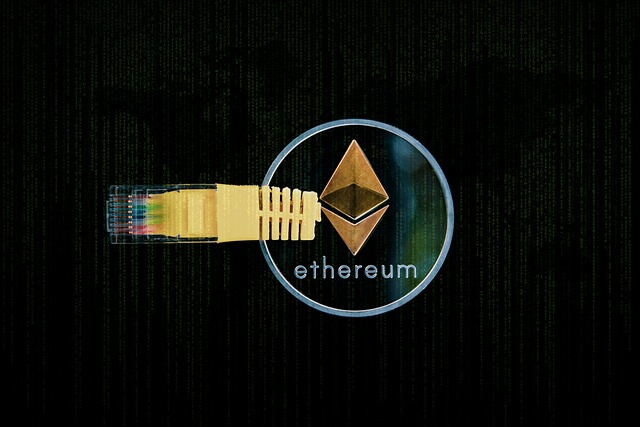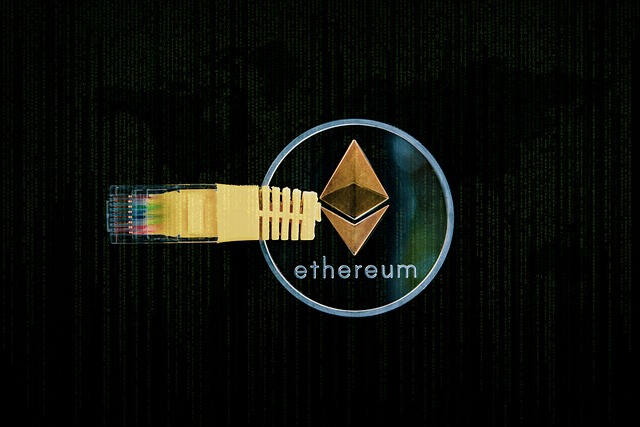Ethereum's smart contracts, written in Solidity, automate and secure agreements without intermediaries using a global, decentralized network. This technology enhances transparency, immutability, and security while streamlining processes in industries like finance, real estate, insurance, and supply chain management. Powered by Ether and decentralized blockchain architecture, Ethereum has revolutionized agreement execution and fostered the development of innovative tools like DeFi and NFTs, marking a significant shift towards efficient, trustless transactions.
Discover how Ethereum is revolutionizing agreements with smart contracts. This cutting-edge technology allows for secure, transparent, and automated transactions without intermediaries. In this guide, we’ll demystify smart contracts, explore Ethereum’s unique role in their implementation, and uncover the vast benefits and applications they offer across various industries. Get ready to dive into the future of agreements powered by Ethereum.
- What Are Smart Contracts?
- Ethereum: The Platform Transforming Agreements
- Benefits and Applications of Smart Contracts on Ethereum
What Are Smart Contracts?

Smart contracts are self-executing agreements with the terms of the contract directly written into lines of code. These digital contracts facilitate, verify, and enforce negotiations without the need for intermediaries like lawyers or notaries. On Ethereum, a decentralized blockchain network, smart contracts are built using its native programming language, Solidity. This allows for transparent, secure, and automated transactions, revolutionizing how agreements are made and executed, particularly in the digital world.
Ethereum’s unique ability to process these smart contracts makes it a game-changer in various industries. Unlike traditional contracts that can be easily altered or manipulated, smart contracts on Ethereum are stored and replicated on numerous computers worldwide, ensuring immutability and reducing fraud risks. This innovative technology promises to streamline processes, reduce costs, and enhance efficiency across sectors such as finance, real estate, insurance, and supply chain management.
Ethereum: The Platform Transforming Agreements

Ethereum is a groundbreaking platform that has significantly transformed the way agreements are structured and executed. Its innovative use of smart contracts, powered by its native cryptocurrency Ether, offers unprecedented levels of security, transparency, and automation. Smart contracts on Ethereum allow for self-executing agreements where terms are directly written into lines of code. This ensures that once deployed, the contract automatically enforces those rules without any intermediary involvement.
The platform’s decentralized nature, built on a blockchain, eliminates the need for intermediaries like lawyers or notaries, reducing potential points of failure and significantly lowering costs. Ethereum provides a robust infrastructure for developers to build decentralized applications (dApps) that leverage smart contracts, fostering a new era of trustless and efficient transactions. This has opened up possibilities across various sectors, from finance and supply chain management to governance and beyond.
Benefits and Applications of Smart Contracts on Ethereum

Smart contracts, a groundbreaking concept introduced by Ethereum, offer numerous benefits and have diverse applications across various industries. One of their key advantages is automation; once deployed on the Ethereum blockchain, smart contracts automatically execute predefined rules when specific conditions are met, eliminating the need for intermediaries and reducing potential errors or fraud. This feature streamlines processes, enhances efficiency, and minimizes costs in sectors such as finance, supply chain management, and real estate.
Additionally, Ethereum’s smart contracts provide enhanced security and transparency. Being decentralized ensures that all participants have access to the same information, fostering trust among parties. The immutable nature of blockchain technology guarantees that once a contract is executed, its terms cannot be altered retroactively, ensuring fairness and accountability. This has led to the creation of new financial instruments like decentralized finance (DeFi) applications and non-fungible tokens (NFTs), revolutionizing traditional banking and artistic ownership rights.
Ethereum is at the forefront of revolutionizing agreements through smart contracts, offering a secure, transparent, and efficient alternative to traditional methods. By leveraging blockchain technology, Ethereum provides an unparalleled level of trust and immutability, unlocking vast potential across various industries. As more applications emerge, it’s clear that smart contracts on Ethereum are set to transform how we conduct business and facilitate agreements globally.



